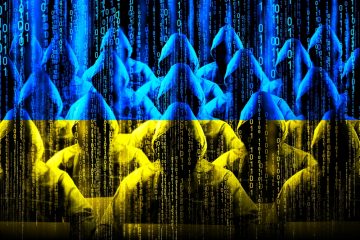Ukraine Bans Telegram on Official Devices Amid Fears of Russian Espionage

In a decisive move to protect its national security, Ukraine has officially banned the use of the Telegram messaging app on government devices, including those used by military personnel and critical infrastructure workers. The decision comes amid growing concerns over Russia's ability to monitor the platform, potentially gaining access to sensitive communications during the ongoing war. The National Security and Defence Council of Ukraine announced the ban following evidence presented by Kyrylo Budanov, the head of Ukraine’s GUR military intelligence agency, that Russian special services could eavesdrop on both messages and users.
Table of Contents
National Security at Risk
Telegram has played a crucial role in both Ukraine and Russia since the Russian invasion in February 2022. It has become a primary communication tool for citizens and officials alike, with its channels often serving as vital sources of news. However, Ukrainian officials have repeatedly raised alarms about the potential risks of using the app, especially given its ties to Russia.
Kyrylo Budanov emphasized the gravity of the situation in a statement: "The issue of Telegram is not about freedom of speech; it's about national security." According to Budanov, Russian intelligence agencies have developed the capability to intercept Telegram messages, including those that users believe have been deleted, as well as personal user data.
Restrictions Only on Official Devices
While the move to ban Telegram may seem sweeping, the restrictions apply solely to official government devices. Andriy Kovalenko, head of the Security Council’s center on countering disinformation, clarified that personal devices of government employees, military staff, and civilians are not subject to the ban. However, the Ukrainian government continues to advise caution for anyone using the app.
Despite the platform’s widespread usage, concerns over its vulnerability to Russian spying have been amplified. Ukrainian media have reported that nearly 75% of the population uses Telegram, and for many, it remains an essential communication and news tool, especially during the ongoing conflict.
Telegram’s Controversial Origins
Telegram’s Russian roots further fuel concerns over its potential security risks. Founded by Russian-born Pavel Durov, who now resides in Dubai, Telegram has a complex history. Durov fled Russia in 2014 after refusing to comply with Russian government demands to shut down opposition groups on his previous social media platform, VKontakte. Despite his defiance of the Russian government, Telegram's perceived ties to the country remain a point of contention.
Adding to the controversy, Durov was recently arrested in France as part of an investigation into criminal activities allegedly conducted via Telegram, including child pornography, drug trafficking, and fraudulent transactions. This only heightens concerns over the platform’s susceptibility to misuse by malicious actors.
Telegram’s Response
In response to Ukraine’s ban and the accusations of Russian surveillance, Telegram issued a firm denial. In their statement, the company asserted, "Telegram has never provided any messaging data to any country, including Russia. Deleted messages are deleted forever and are technically impossible to recover." Telegram further explained that any leaked messages in the past had been the result of compromised devices, often due to confiscation or malware.
Nonetheless, the Ukrainian government remains vigilant. While Telegram claims that no data has been disclosed, security experts argue that the platform's potential weaknesses, particularly during wartime, pose too significant a risk to ignore.
What’s Next for Ukraine’s Digital Security?
As the war with Russia drags on, Ukraine must navigate the delicate balance between maintaining open communication and ensuring the safety of its critical infrastructure. The ban on Telegram marks a significant step in securing digital channels, but it also highlights the larger challenges facing nations in an era where messaging apps and social media play vital roles in both civilian life and warfare.
For now, the Ukrainian government, military leaders, and even President Volodymyr Zelenskiy will continue to use alternative platforms to communicate important updates. Telegram may still be a popular tool for many Ukrainians, but its future role in official capacities remains uncertain as security concerns mount.
With espionage threats growing and digital warfare intensifying, Ukraine’s move to ban Telegram on official devices signals its ongoing efforts to safeguard sensitive information, ensuring that its national security is not compromised in the process.








